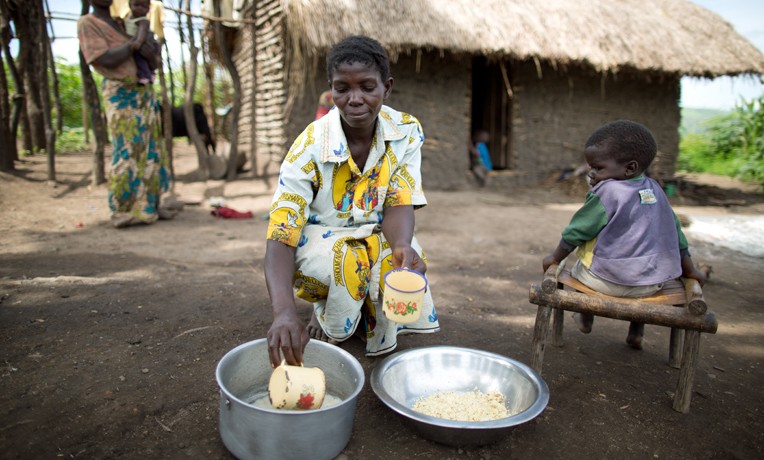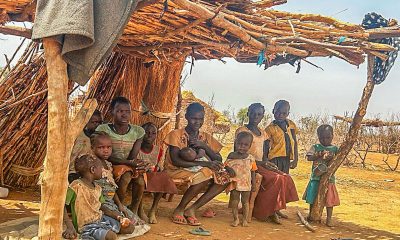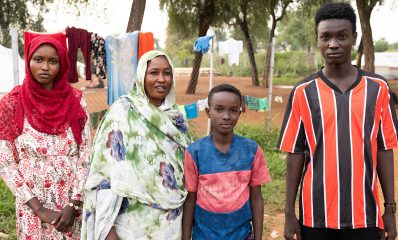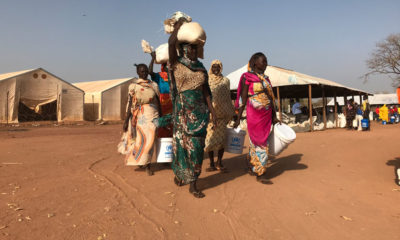People in the Democratic Republic of the Congo receive staples from Samaritan’s Purse
We pull our Land Rover into a field and are instantly greeted by curious children. Beyond, I see tarps covering massive stacks of food items to distribute. There are ropes around the perimeter where the beneficiaries wait until the Samaritan’s Purse distribution team is ready to begin.
We’re serving 4,110 beneficiaries—all of whom are internally displaced by conflict. I take a few photos around the site of our team and the provisions. I begin walking around to see the various stations set up with Samaritan’s Purse staff members or day laborers making the proper preparations before we begin. One woman signs people in; others sit on stools or bags of food and pour the large bags of salt into properly portioned bags to hand out; and many men stand on large trucks, tossing heavy bags of beans to others below.

Gracie punches jeton cards for beneficiaries.
Previously, I had heard about distributions, entered data from beneficiaries, and researched for future projects. But now, these beneficiaries are no longer numbers on paper to me. They’re human beings coming from incredibly difficult situations. They all have their own stories of how they came to this point.
The aid they are receiving is coming in the form of beans, oil, salt, and corn. At this particular distribution, we’re giving out a double ration. So everyone receives two of each ration, which also means they have to carry twice as much. I’m amazed as I watch mostly women file through the line with heavy bags wrapped in fabric, fastened across their forehead, and holding two jugs of oil in their arms.
I’m given the task of punching “jetons”—laminated cards that are punched for each round of distributions we do. Since this distribution is the last two rounds at once, each person receives two punches, and I take their cards, which will be used for monitoring and evaluation.
Dark clouds begin to cover the sky, and my friend offers to give me a break from punching jetons and encourages me to help pass out oil. I make my way over to the boxes of oil, covered by tarps, and begin passing out jugs. As we reach a lull in the line and it begins to drizzle, I move under the tarp with ladies sitting nearby and take a seat on a bag of beans.
Children are playing in the open area behind me, and we begin exchanging glances. My French is sub-par, so I choose to make faces at them. Some hide. Others wait and see what crazy face the Mzungu (their term for white person) will make next. It’s a simple exchange, but there is such beauty in the universal enjoyment of making funny faces.
In this small, but powerful, moment, cultural and language barriers come crumbling down, and I’m faced with this truth: As children of the same great God, we are so much more alike than we realize.





